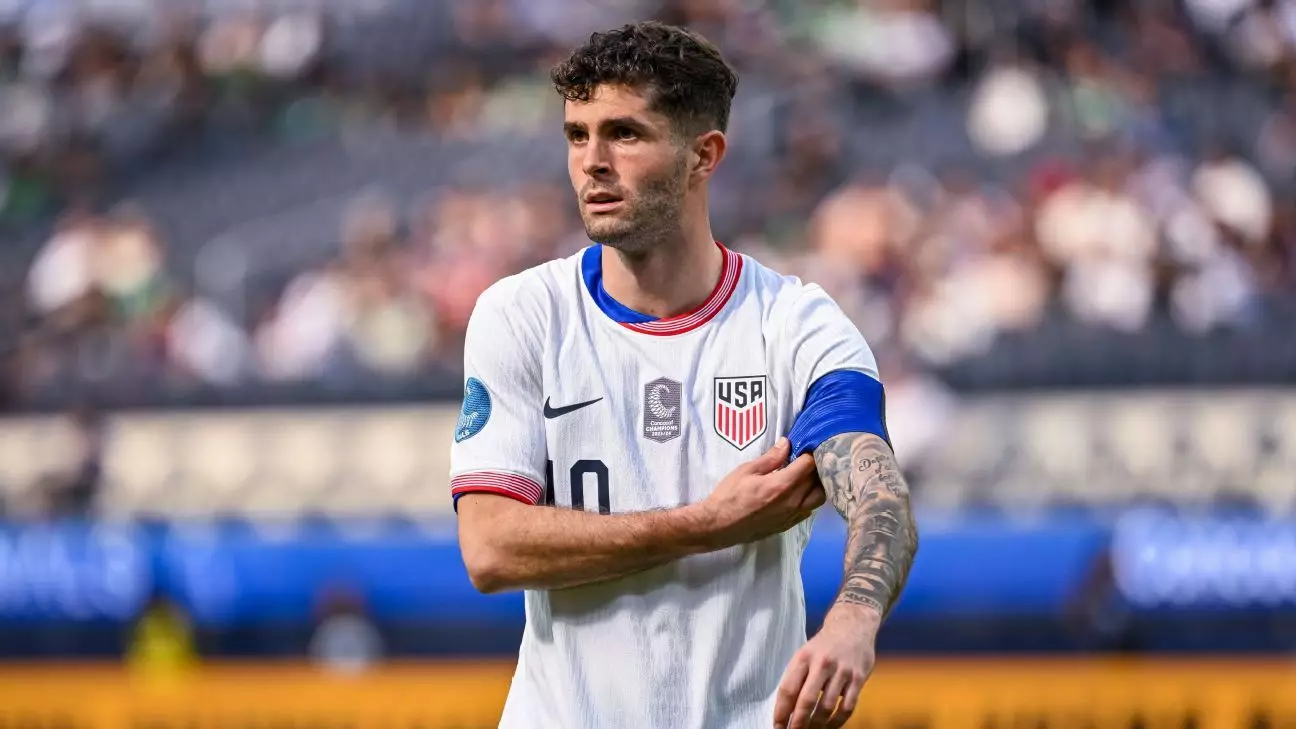The world of soccer has always been captivated by its icons, players who define eras and inspire generations. In the United States, where the sport is steadily growing, the emergence of Christian Pulisic as a future star has not gone unnoticed. Mauricio Pochettino, head coach of the U.S. men’s national team (USMNT), believes that Pulisic harbors the potential to become the Lionel Messi of American soccer. This assertion does not merely elevate Pulisic’s stature—it encapsulates the aspirations of an entire nation longing for a soccer figure to rally behind. Pochettino’s sentiments echo the dreams of countless fans who wish for a player to embody the thrill, dedication, and global recognition akin to that of the legendary Messi.
Pulisic, now 26, has crafted an impressive career over the past few years. With 32 goals and 18 assists in 76 international appearances, his on-field contributions to the USMNT are monumental. His leadership abilities have been further highlighted as he has donned the captain’s armband during significant matches, guiding the team to multiple Concacaf Nations League trophies. His club journeys through Borussia Dortmund, Chelsea, and currently AC Milan have only enhanced his profile, with a notably successful recent season yielding 17 goals and 12 assists. Yet, amid this upward trajectory, Pulisic’s recent decision to sit out certain friendlies and the upcoming Gold Cup to ensure peak physical condition raises questions about player management in the increasingly competitive soccer landscape.
The Balancing Act of Commitment and Well-Being
While many may view Pulisic’s hiatus as a deviation from national pride, it’s essential to consider the intense demands of modern soccer. The dialogue between Pochettino and Pulisic highlights a critical recognition: players are not just cogs in the machinery of soccer; they are individuals who must balance personal needs with the weight of national expectations. This nuanced understanding must become more prevalent in American soccer culture. Players today face grueling schedules that can wear them down mentally and physically, making it essential they prioritize their health to perform at the highest level for their clubs and country.
Pochettino’s supportive stance on Pulisic’s decision speaks volumes about the kind of integrated approach national teams must adopt—one that respects the player’s well-being while fostering a sense of commitment to the team. He remarked on Pulisic’s eagerness to don the national colors, a desire shared by many elite athletes worldwide, including some of the most revered players such as Messi and Neymar, who recognize that national pride transcends mere participation.
The Team Dynamics: A Broader Responsibility
Despite Pulisic’s absence from the roster, a larger narrative begins to unfold regarding the USMNT as it prepares for the future. Pochettino emphasized that all players should hold national representation in high regard. This assertion encourages a cultural shift within American soccer, pushing players toward a shared understanding of the privilege that comes with representing one’s country.
Even without star players like Antonee Robinson and Weston McKennie joining the upcoming Gold Cup, the squad’s resilience should not be underestimated. The journey and experiences of players like Pulisic can serve as guidance for upcoming talents who will take center stage. In establishing a competitive spirit reminiscent of the world’s top soccer nations, the United States can stimulate both growth and admiration for the sport.
As the USMNT gears up for friendly matches against Turkey and Switzerland, along with competitive fixtures against Haiti and Trinidad and Tobago, the focus shifts from individual players to team cohesion. The emphasis on unity and shared goals can unify the nation’s budding soccer identity, fostering an environment where new heroes can emerge. As Pulisic continues to evolve both personally and professionally, his journey may inspire the next generation to pursue excellence in American soccer, creating a legacy far beyond just one player.
In essence, soccer in the United States stands at a pivotal juncture. As Pulisic embodies the hopes of many, the broader responsibility to inspire and cultivate talent lies with individuals throughout the sport’s ecosystem—coaches, managers, fans, and, most importantly, aspiring young players. The quest for the next great American soccer legend has begun, and the landscape remains ripe for exploration.


Leave a Reply